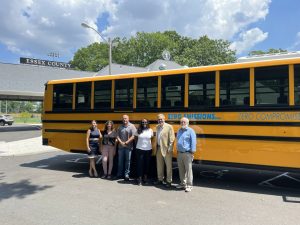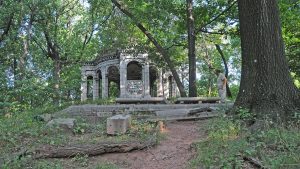
Weequahic Park Association (WPA) has been dedicated since 1993 to restoring and preserving Weequahic Park, a 311-acre Olmsted legacy park designed to provide a sanctuary in Newark’s South Ward. The community, 90% people of color with 26% living below the poverty line, is ringed with stressors: Newark International Airport, White Chemical Superfund Site, and the nation’s busiest port, Port Newark are all nearby. Lack of funding to maintain the park threatens its ability to provide community resilience, impacts its value to the community for recreation, and poses a threat to wildlife habitats. Despite challenges like frequent flooding, urban development, infrastructure issues, and environmental contamination, WPA aims to cultivate green infrastructure, host cultural events, and engage the public to educate citizens on environment and climate. WPA partners with environmental activists to secure a healthy environment for citizens in the greater Newark area, with a focus on environmental justice.

New Jersey Clean Cities, New Jersey Environmental Justice Alliance, Sierra Club, the Weequahic Park Association, the Newark Environmental Commission, Newark Public Schools and others, gathered at Weequahic Park to learn more about the benefits of Electric School Buses, and the available funding.
In a partnership agreement with Essex County, WPA serves as manager and steward of Weequahic Park. With more than 100 members, the BIPOC-led nonprofit has been a stalwart champion of one of the few areas of greenspace for the overburdened community. “People come here to walk, picnic, jog, birdwatch, see wildlife like red fox, coyotes, and deer. They come here to enjoy its peace, but it’s in peril,” according to Newark resident Wynnie-Fred Victor Hinds. “The lake is polluted – in terrible shape – and yet people still fish there. We need to protect it, and in turn protect our entire community.” A 2023 recipient of the National Fish and Wildlife Foundation’s National Coastal Resilience Fund, WPA is creating a plan that prioritizes nature-based strategies for the flood-prone, historically underserved communities in Newark’s South Ward. WPA addresses, not only flooding, park preservation, health concerns, and air pollution, but other environmental and social issues, all within a justice and equity framework.

Weequahic Park, Newark, NJ – Photo by Sara Cedar Miller, courtesy Weequahic Park, 2011